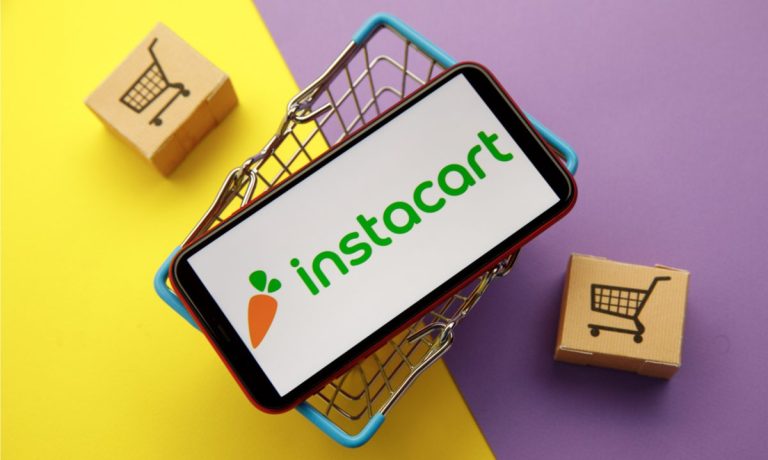Instacart Debuts Employee Wellness Perks to Court Business Customers

Among other moves to expand its audience, Instacart is now targeting businesses with a range of initiatives focused on employee health.
Amid a range of features and promotions included in its new “Instacart Health” initiative announced Wednesday (Sept. 28), the grocery technology giant has introduced a business nutrition benefit called Fresh Funds.
The feature enables organizations ranging from insurers to employers to provide funds for people to purchase nutritious foods. Organizations can also restrict the categories on offer — allowing an employee to purchase produce but not chips, for instance.
An initial pilot test of the program will go live “in the coming weeks” in Indianapolis, with the company hoping to expand it across the United States next year. Additional tests have also been planned with “public and private sector organizations” in the months ahead.
The launch comes alongside the White House Conference on Hunger, Nutrition and Health, which included the participation of Instacart CEO Fidji Simo.
“Our nation’s hunger and health problems are complex and require cross-sector collaboration,” Simo said in a statement. “At Instacart, we’re building the technologies that can help many organizations — from healthcare providers, insurers, nonprofits, employers, and health experts — give more people access to fresh, nutritious foods with dignity, speed, and convenience.”
A number of food aggregators are looking to supplement the revenue from their B2C businesses with B2B offerings. DoorDash, for instance, offers a DashPass for Work program that allows employers to provide meal delivery as a worker perk. Similarly, Grubhub has its Grubhub Corporate Accounts, and Uber for Business has its own meal delivery offerings.
Learn more: DoorDash, Restaurants Target Businesses as Office Workers Return
In addition to this business offering, Instacart also announced the launch of Care Carts, which allows healthcare providers and caregivers to purchase groceries for delivery for their patients. Through this move, the grocery aggregator is expanding the range of possible use cases, targeting a new audience.
In another push to broaden the aggregator’s audience, Instacart also said that it is working with the United States Department of Agriculture (USDA) to expand its ability to accept Supplemental Nutrition Assistance Program (SNAP) Electronic Benefits Transfer (EBT) across the country.
Similarly, Instacart will also add the ability to pay with Temporary Assistance for Needy Families (TANF) benefits next year, with the benefits available for both food costs and service and delivery fees.
See also: Instacart Launches Health Initiative, Expands SNAP EBT Access
Additionally, the aggregator also announced moves to boost the company’s value proposition for consumers overall, including an initiative to partner with media companies’ food and lifestyle publications to offer shoppable “healthy” recipes. Another such feature for the typical Instacart shopper is in-app Pop-Ups, sections that highlight select product categories such as vegan foods and low-sodium items.
Across these new features and initiatives, Instacart is not only positioning itself as a company that cares for people’s health, but it is also expanding its audience to customers who may otherwise not have had the ability — or the incentive — to shop with the aggregator.